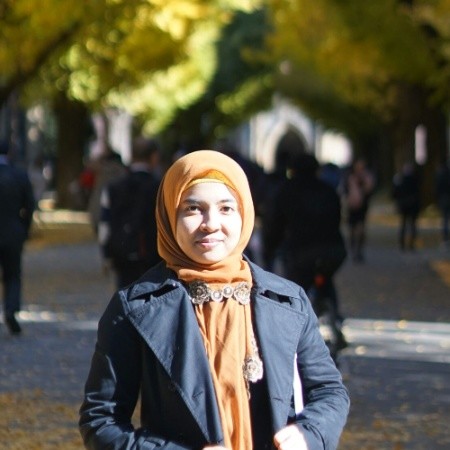PREMARRIAGE SEX EDUCATION IN AN EFFORT TO INCREASE KNOWLEDGE OF RISK SEXUAL BEHAVIOR IN ADOLESCENTS
Downloads
Introduction: Risky sexual behavior in adolescents is a problem that is often experienced by most teenagers in Indonesia. The incidence of deviant behavior is currently increasing among adolescents. One example of cases of deviant behavior in adolescents is pregnancy outside of marriage. Therefore, it is necessary to have prevention activities by conducting socialization and health education related to risky sexual behavior in adolescents. Sexual education aims to help adolescents in making decisions and the risks of their sexual attitudes. The purpose of this community service activity is to increase adolescent knowledge regarding risky sexual behavior that often occurs in adolescents.
Methods: The population of this activity is in the form of Health Education which is carried out on 320 students of class XI Vocational High School 10 Malang. The sample used in this activity is 10% of the total 32 students. The variable measured in this activity is adolescents' knowledge regarding risky sexual behavior. Health education activities began by conducting a pre-test using a questionnaire on risky sexual behavior in adolescents, then providing education with the lecture method and playing a video on the impact of sexual behavior on adolescents, and ending with a question-and-answer session accompanied by a post-test. Knowledge measurement is done by using univariate analysis by analyzing the results of pre and post-test.
Results: The results of this activity can be seen from the post-test to pre-test results that have been carried out, namely an increase in student knowledge marked by a change in the score on five of the six achievement indicators. The first indicator is causes of free sex with an increase of 3.6%. The second indicator of the form of sex increased by 50%. Third, parties affected by premarital sex increased by 53.6%. Fourth, the purpose of premarital sex health education increased by 39.7%, and lastly, the prevention of premarital sex increased by 7.1%. With the results obtained an increase in the score indicates that the information conveyed by the researcher can be accepted by students well.
Conclusion: The level of students' knowledge about premarital sex increased marked by a change in the score for the better on five indicators, namely knowledge related to causes, forms, affected parties, goals and prevention of premarital sex in adolescents. Health education needs to be carried out continuously, so that information related to good sexual education can be well absorbed by adolescents.
Amalia, Rizky (2019) Sosialisasi pendidikan seksual sebagai upaya penanggulangan seks bebas pada remaja di Kabupaten Malang / Rizky Amalia. Diploma thesis, Universitas Negeri Malang.
Blegur, J.2017. Preferensi Perilaku Seksual Remaja. Proyeksi: Jurnal Psikologi, 2018 - jurnal.unissula.ac.id Vol.11 (2) 2017,9 – 20. DOI: http://dx.doi.org/10.30659/jp.12.2.9-20
Febriawati, H., Padila, P., & Anita, B. (2018). Pendidikan Seksual Remaja Melalui Poskesja. Jurnal Pengabdian Masyarakat Bumi Raflesia, 1(1), 45-53. http://jurnal.umb.ac.id/index.php/pengabdianbumir/article/view/193
Kemenkes RI. (2018). Bagi Para Remaja, Kenali Perubahan Fisik untuk Menghindari Masalah Seksual. https://www.kemkes.go.id/article/view/18122000004/bagi-para-remaja-kenali-perubahan-fisik-untuk-menghindari-masalah-seksual.
Ketting, E. & Ivanova, O. (2018). Sexuality Education in Europe and Central Asia: State of the Art and Recent Developments An Overview of 25 Countries. European Network: International Planned Parenthood Federation. Diakses dari https://www.ippfen.org/sites/ippfen/files/2018-05/Comprehensive%20Country% 20Report%20on%20CSE%20in%20Europe%20and%20Central%20Asia_0.pdf
Marlina, H., Lapau, B., & Ezalina. (2013). Perilaku Seksual Remaja SMA Negeri Se-Kota Pekanbaru Tahun 2012. Jurnal Kesehatan Komunitas, 2(2), 55–60. https://doi.org/10.25311/keskom.vol2.iss2.45
Parmawati,Ika.,dkk. 2020. Upaya Penurunan Aktivitas Seksual Pranikah Melalui Pendidikan Kesehatan Reproduksi Berbasis Kesetaraan Gender. Jurnal Pengabdian kepada Masyarakat Vol. 6, No. 1, Maret 2020, Hal. 38 – 44 DOI: https://doi.org/10.22146/jpkm.38144
Pelamonia, Risart. 2020. "SEKS PRANIKAH.” OSF Preprints. March 20. doi:10.31219/osf.io/qeg8h.
Prabasari, Siska Ningtyas and Putri, Hanifa Andisetyana. 2017. Perbedaan Pengaruh Pendidikan Kesehatan Metode Ceramah Dan Diskusi Kelompok Terhadap Tingkat Pengetahuan Seks Pranikah Remaja Kelas X SMAN 2 Banguntapan. Skripsi thesis, Universitas 'Aisyiyah Yogyakarta.
Qomariah, S. (2020). Pacar Berhubungan dengan Perilaku Seks Pranikah pada Remaja. Jurnal Kesmas Asclepius, 2(1), 44-53. https://doi.org/https://doi.org/10.31539/jka.v2i1.585
Radjagukguk, D. L., & Sriwartini, Y. (2020). Peran Orangtua Menyikapi Pornografi Pada Remaja Melalui Komunikasi Efektif. Dinamisia : Jurnal Pengabdian Masyarakat, 4(2), 354–363.
Sari, Rizqi Tria.2014. Perilaku Seksual Remaja Siswa Smk Ketintang Surabaya. Jurnal BK. Volume 04 Nomor 03 Tahun 2014. 1 – 9.
Yutifa, H., Dewi, A. P., & Misrawati. (2015). Hubungan Paparan Pornografi Melalui Elektrinik Terhadap Perilaku Seksual Remaja. Jurnal JOM, 2(2).
Copyright (c) 2022 Jurnal Pengabdian Masyarakat Dalam Kesehatan

This work is licensed under a Creative Commons Attribution 4.0 International License.
Authors who publish with Jurnal Pengabdian Masyarakat dalam Kesehatan agree to the following terms:
The journal allows the author to hold the copyright of the article without restrictions.
The journal allows the author(s) to retain publishing rights without restrictions
The legal formal aspect of journal publication accessibility refers to Creative Commons Attribution (CC BY).
Authors retain copyright and grant Jurnal Pengabdian Masyarakat dalam Kesehatan the right of first publication with the work simultaneously licensed under a Creative Commons Attribution 4.0 International License that allows others to remix, adapt and build upon the work with an acknowledgment of the work's authorship and of the initial publication in Jurnal Pengabdian Masyarakat dalam Kesehatan.
- Authors are permitted to copy and redistribute the journal's published version of the work (e.g., post it to an institutional repository or publish it in a book), with an acknowledgment of its initial publication in Jurnal Pengabdian Masyarakat dalam Kesehatan.
Jurnal Pengabdian Masyarakat dalam Kesehatan requires a formal written declaration and transfer of copyright from the author(s) for each article published. We, therefore, ask you to complete and return this form, retaining a copy for your own records. Your cooperation is essential and appreciated. Any delay will result in a delay in publication.

JPMK by Unair is licensed under a Creative Commons Attribution 4.0 International License.










